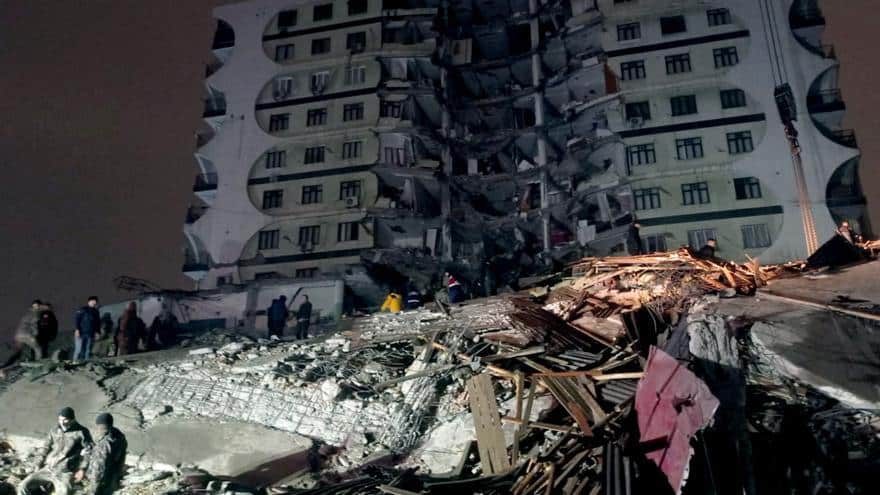At least 600 people have died in Turkey and Syria after an earthquake of 7.8 magnitude hit during the early hours of Monday morning. The epicenter asw near the city of Kahramanmaras in southeast Turkey, a few kilometers from the Syrian border.
Largest earthquake in the country since 1999
The earthquake, the largest on record in the Anatolian country since 1999, a 7.6 which hit close to Istanbul and left more than 17,000 dead– has led to the destruction of thousands of residential buildings in several cities in the region, such as Adana, Antakya, Kilis, Gaziantep, Malatya and Diyarbakir in addition to Kahramanmaras.
“Our search and rescue teams have been sent immediately to the regions affected by the earthquake. Our Interior Ministry, emergency services and governors are working quickly,” Turkish President Recep Tayyip Erdogan said on his social media early this morning.
In all, of the more than 600 dead, 284 of the fatalities have occurred on the Turkish side of the border; the rest, more than 230, have occurred in regions of Syria controlled by the Damascus government and of Bashar al-Assad especially in the provinces of Aleppo, Hama, Latakya and Tartous, according to the Syrian government.
Kahramanmaraş merkezli depremin ardından Diyarbakır'da bina çöktü
Çok sayıda yurttaş enkaz altında kaldı
Yurttaşlar, bina altında kalanlara yardım etmek için yoğun çaba harcıyor pic.twitter.com/nkQVKR7g3H
— Cumhuriyet (@cumhuriyetgzt) February 6, 2023
Television images in Turkey show how citizens, in the early hours of the morning and into this morning, are trying to lift the rubble to pull their neighbors out from under the ruins.
The main earthquake early Monday morning started at 4am local time, and was rated at 7.8 on the Richter scale. However, during the following hours more than a dozen aftershocks have been recorded throughout the region, some of which have been up to magnitude 6.6 on the Richter scale.
“We ask our citizens not to use the telephone too much and to keep the telecommunications lines unoccupied, and to leave their homes and not stay in them. Aftershocks could lead to the collapse of more buildings that were damaged in the first quake,” the Turkish government said in a statement.
For the full article, please visit Diario de Ibiza website here.

